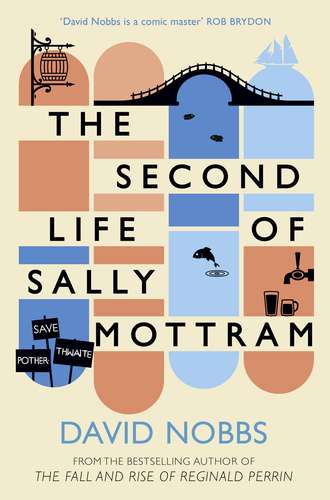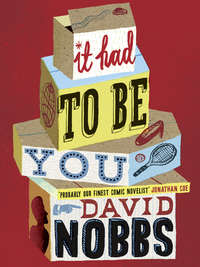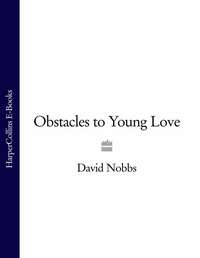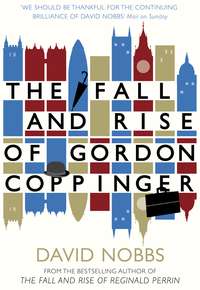
Полная версия
The Second Life of Sally Mottram
And then a rather extraordinary coincidence occurred. Except that it might not have been a coincidence, and in that case it wouldn’t have been extraordinary at all. Sally saw a small yacht, beating up the Channel towards Torbay.
She wondered. Could it be? Why not?
She stopped hurriedly. She was only about two feet from the edge. Two feet. Twenty-four inches. The realization of how close she’d been to death sent an electric shock through her.
Would she have wanted to stop if she had not seen the boat? Would she have been able to stop if she had not seen the boat? She didn’t know. And she never would know, that was what was so disturbing. In days to come she would relive the moment, and – it was unnerving – she still wouldn’t be certain that this time she would stop.
She went back to her Droppings Free Zone. She sat down. Her heart began to slow. She took the letter out of her pocket, opened it, pulled at the sheets of paper to get the worst of the creases out.
She read it.
Dear dear Sally …
You don’t necessarily increase the power of your words by repeating them, but at this moment in her emotional life she was grateful for that word – ‘dear’ – and for its repetition.
I know you gave me this address for emergencies, and this is’nt an emergency, but we take each other for granted, and then when you are’nt there we miss you. I am missing you so much. Potherthwaite is missing you. I am also dreadfully worried that you will be so tempted by the southern zeffirs …
She smiled at Marigold’s mistake. She did. She actually smiled. It wasn’t much of a smile, but still, it was a smile. There was something about Marigold.
… that you won’t come back. Please let me know that you will come back …
Could she believe any of this?
Anyway, you said that you were coming back next Tuesday, and I wondered if when you get back we could have lunch at the Weavers’ one Thursday, when all the oldie’s gather for their Pensioner’s Offer’s and we can feel like youngsters again.
What did a few apostrophes matter compared to a warm heart, but had Marigold really got a warm heart? Could she still believe of anybody that they had a warm heart? Could she believe it of herself?
I wondered if you’d mind if we invited Olive and Arnold to join us. Its a funny thing, and people will talk, but I don’t think there’s anything in it, but I may be wrong, but I don’t think so, well I suppose I wouldn’t, would I, but Harry and Jill have gone off together all the way to Fowlmouth in Cornwall to collect his boat, which is a yawl, whatever that is, and sail it back north somewhere so he can use it. He keeps it at somewhere called Emworth or something in Dorset or somewhere, but last back end he got stuck with a bad gale going the wrong way as they do, and no time to bring it back, so its been at Fowlmouth all winter, which has cost a packet, so he’s not keen on paying out to bring it back. Jill’s game for anything, and is very strong, I’ve seen her in the shower’s at the tennis club and I’d put her in the second row if she did rugby she’ll be great with the close-hawling or whatever it is. I think its just convenience and saving money, and no funny stuff, but you know what people are.
I hope you don’t mind, but I know you won’t, you aren’t like that, but I called on Ellie, I hope you don’t think I’m butting in on your parade but I was very moved by what you said about seeing her. She talked of your visits and how they cheer her up.
Laugh of the week. Someone stole a big old illustrated Bible from the church and broke into Sophie Partingtons’ in Canal Basin, you know, the prostitute who’s so active they sometimes say she’s the red-light district on her own, and left the Bible there. Someone with a sense of humour!
Looking forward to next week,
Your fellow damsel in distress.
Marigold xxx
Sally stood up, put the letter back almost lovingly into her pocket, and walked more slowly towards the edge. She looked at the little boat, so bravely mounting the waves on that windy evening. Was it a yawl? What was a yawl? It had two masts, a big one in the front, a smaller one at the back. Was that a yawl?
She wanted to know if this was Harry’s boat. She liked Jill and had taken to Harry instantly, and she so hoped that her life had been saved by them. Oh, it must be them. It just must be.
And then she realized that it didn’t really matter. Even if it wasn’t them, the thought that it might have been them had stopped her, and so they had saved her life anyway.
She waved. She waved frantically. But they were too far away, they didn’t see her, they didn’t wave back. She called ‘Ahoy’. She knew enough about sailing to know that that was what you shouted. She didn’t know what you shouted to fishmongers or solicitors but sailors were easy. You shouted ‘Ahoy’. ‘Ahoy,’ she shouted. ‘Ahoy there.’ But it was no use. They didn’t hear. They didn’t see.
Quite soon they were past her, moving well in the evening wind. She felt flat now. The excitement was over. She began to wonder if they had really saved her life. Or had they only saved it for today?
There wasn’t much point in saving her life if it was just going to be more of the same. There wasn’t much point in saving her life if she was just going to exist, not trusting anybody.
It was an awful thought – she was ashamed of it even as she thought it – but if Judith was drowning and somebody saved her life, it would only be of real importance to Judith herself.
Gradually, then, she began to notice her surroundings. She saw for the first time that it was evening, late evening. The very last narrow arc of the sun had disappeared, in its rush to warm Alice at her breakfast in New Zealand. It was late, the wind had dropped but the air had gone very cold with the setting of the sun. There wasn’t a soul in sight, she had no warm clothes, she hadn’t brought her mobile, she hadn’t eaten or drunk a thing since breakfast.
She was frightened. This struck her as pathetic too. She had been contemplating death, almost welcoming it, and now she was frightened of the cold and the dark and the loneliness.
Where should she walk? Inland. Nothing else made sense.
She found a hedge. She couldn’t clamber through it. She walked along it and found a gate. She couldn’t open it. She tried and tried. She tried to clamber over it. She tripped and fell in a heap, hurting her knees and an elbow. At least she had fallen into the next field. She couldn’t get up. She hadn’t the energy. She was starving and dehydrated.
Fight, Sally. This is all your stupid fault. Show your mettle.
Increasingly, we live in a virtual world. Have some virtual food, Sally. You need some virtual calories.
She ate two virtual bananas liberally heaped with virtual sugar and virtual double cream. It was virtually useless.
Or was it? She was still starving, but at least she found the energy to stand up. She tested her arm and her legs. Pain, but bearable, and nothing broken.
By this time it was completely dark. She was alone in a field on a dark night in the middle of nowhere, and she was very, very cold. A mist was forming in the fields, and through the mist she saw them. Cows. She was terrified of cows. Most people were terrified of bulls, but with her it was cows too.
For a moment, in the mist, they looked unreal. She had a brief hope that they were virtual cows. In her state of mind they could well have been. But they weren’t, they were solid, huge, and emitting clouds of hot, foggy breath to thicken the mist.
She knew that she should be calm, must be calm, but she couldn’t be. She ran for it, ran as fast as she could, on bruised legs with no strength in them.
The cows ran too. At the time she thought they wanted to kill her to protect their calves; it was spring, she imagined it was the calving time. Later she thought that they had probably been thinking, ‘Hey up, this is the best night we’ve had in our unbelievably tedious lives since our mummies licked the placenta off us when we were born.’
She hurtled across the field towards the corner, some obscure instinct telling her there was more likely to be a gate at the corner. The moon shone briefly through the mist, giving a white ethereal light. There was no gate, but there was a stile. She clambered over it, feeling the warm breath of the cows. She fell into a mess of mud and water left over from the wet winter. Behind her the cows snuffled in disappointment. She had more bruises, and there was mud all over her face.
There didn’t seem to be a house anywhere. Or a farm. Britain was an overcrowded, overpopulated island. There were new housing estates everywhere. Everywhere there were milling crowds of lost Hungarians, disillusioned Poles and Muslim women who couldn’t see where they were going. How could there be nobody here at all?
And what a disgusting place the countryside was.
On the other side of the stile, beyond the mud and filth, there was a lane. Which way to go? She chose the right. It seemed right. That way, it felt, was civilization. That way, it felt, was Totnes. That way, it felt, was Judith. She almost turned round. She didn’t want to face Judith. Judith would be livid.
She didn’t know how long she walked. Maybe an hour, maybe two. She was weary, she was stumbling, she leant for a minute or two against a telegraph pole. She was shivering helplessly now. Her hands and feet were blocks of ice. She would die of hypothermia.
The lane ended in a T-junction, not with a main road, but with a slightly larger lane. She felt the sea to the right, so she turned left. She had no idea whether that was right, but if she turned left and right alternately she felt that she would run less risk of going wrong, if that made sense. Something must lie somewhere, if she went reasonably straight.
She heard it first. A growl. The growl of an angry, neglected lorry. Then she saw the headlight. One. Not promising.
She didn’t know whether to wave or hide. She felt that the latter might be the wiser, but there wasn’t time.
The lorry pulled up with a prolonged squeal of brakes. It was filthy. Sally, suddenly alert, noticed that the number plates were covered in the mud of a whole winter. That wasn’t good, in fact it was very bad, but what alternative had she? If she refused to get in, he could rape her here, in perfect safety.
The driver switched off the engine. The sudden silence was unexpected and seemed laden with menace.
He clambered out of the cab, came round to her where she shivered. He was tall. He was muscular. In the headlight, just for a moment, she saw that his long, thick hair was matted with sweat, his broad, unshaven face streaked with mud. As he got closer, she smelt farmyard smells, smells she was unfamiliar with – slurry and pig shit. She was very frightened.
He put out his great hands as if to pick her up, saw her flinch, thought better of it. He had to help her up into the seat though, and inevitably, in the process of doing that, he had his hands round her buttocks, her much admired buttocks, her generous buttocks, though they weren’t feeling generous now. He clambered into the driver’s seat, glanced at her, smiled, but said nothing.
As she settled herself she reached in behind her anxious buttocks to remove a pamphlet that she was now sitting on. It might come in handy as evidence later. God, she tingled with terror at the thought of evidence. It was an advert for Storth Pumps and Stirrers. That didn’t help much. She had no idea what they were.
He started up, and they roared off, the noise of the badly maintained diesel engine shattering the silence of the night and giving tawny owls paroxysms.
‘Where to?’ he asked.
‘Totnes, please.’
‘Right.’
‘My sister’s.’
She got that in quick, hoping the knowledge of a sister’s existence might frighten him.
‘Right.’
He was silent for a moment as he planned his route. Then he spoke softly, in a kindly tone. Even in her weary condition this made her suspicious. Oh dear, she thought, he’s trying to put me at my ease before the attack.
‘So what were you doing wandering around in this terrible state?’
His voice didn’t match the lorry. It was not a voice covered in mud. It was not a voice on its last legs. He didn’t growl. In fact he sounded, in the word she used later to describe him … couth.
She told him her story, very briefly, and not without tears.
He made no comment, no comment at all, no criticism, no sympathy, nothing. She realized, much later, that he knew that she was too tired for anything more.
She felt a strange compulsion to steal a quick look at him. His face was set firmly on the road. His profile was almost classical, apart from the mud. He looked tense. The mist was getting even thicker now, and he clearly had no confidence in the lorry.
Headlines from the tabloids filled the night sky, swirled in the gathering mist: Police Hunt for the One-Headlight Rapist. Murder in the Mud. Dirty Secrets of ‘The Good Samaritan’. Even Our Lanes Aren’t Safe Any More. Where Is the Storth Pump Killer?
It was quite a long journey. She slept for a while, her head repeatedly lolling towards him. Then she woke and their eyes met. He tried to smile. It went horribly wrong. She almost cried out.
‘Totnes soon,’ he said, and then he pulled up.
She was terrified now.
He reached into his pocket. She almost stopped breathing. Was he going to shoot her first? Was he a necrophiliac?
He got out a hairbrush and began to brush his hair.
‘Don’t want to frighten that sister of yours,’ he said with a grin.
He had a surprisingly boyish grin.
FOURTEEN
A surprise
Sally woke to find the sun streaming in through elegant curtains that Judith had bought because they were beautiful not because they kept the light out. The tulips on the elegant dressing table were as fresh as the day they’d been picked. The elegant glass of water at her bedside was untouched. She couldn’t remember when she had slept so well. She glanced at the elegant little bedside clock and was shocked to find that it was twenty-five past eleven. They were due at house number four at eleven. Judith would be livid.
She didn’t mind! She could face Judith’s lividity. She had survived yesterday’s ordeal. She felt stronger for it.
She practically leapt out of bed. Her legs buckled, her head swam. A moment ago she had felt strong. Now she felt weaker than she had ever been.
She sat on the bed.
The door opened and Judith came in. She looked as if she was dressed for lunch at the Ritz. She didn’t look livid, but she didn’t look exactly pleased either.
‘We’ve missed our appointment,’ she said. ‘I’d cancelled a golf match because of that appointment.’
‘I’m really sorry.’
‘It’s all right. I’ve rearranged it for three o’clock.’
‘I hope you win.’
‘Not the golf match. The viewing.’
Oh God. Could she face it?
No. No more lies.
‘You’re covered in bruises.’
‘Am I? Sorry.’
‘Don’t be silly. Look at you. What did he do to you?’
Sally examined her body. She had slept in the nude since Barry had died, whereas she never had when she had been sleeping with him. This morning, when her nudity was witnessed by her sister, that suddenly struck her as odd.
Judith was right. She was black and blue.
‘He didn’t do anything.’
She could see that Judith didn’t believe her. Mysteriously, she needed to make Judith believe her.
‘He didn’t, Judith. He really didn’t.’
‘All right. I believe you.’
But she didn’t.
‘How much did I tell you last night?’
‘Not a lot. That dreadful man told me to give you a hot bath, something solid to eat and a hot drink. You kept falling asleep. You were like a very big baby. I virtually had to bath you and feed you. And I just couldn’t stop you shivering.’
‘He wasn’t a dreadful man. He was very nice.’
‘He didn’t look very nice to me.’
‘Nor to me. I thought he was awful. I feel bad about that now. I should have got his name. Did you?’
‘Of course I didn’t.’
‘I want to thank him. He saved my life.’
‘Don’t exaggerate.’
‘I’m not. Seriously, I think I might have died of hypothermia. It was very cold, and I only had thin clothes.’
‘You’re an idiot, Sally.’
‘I know. And you aren’t. It’s nice to be so different. It’s why we get on so well.’
‘Do we?’
‘I don’t even have his number plate. It was covered in mud.’
‘Exactly. He’s not to be trusted. I knew the moment I saw him there was something odd about him.’
‘In a way, what was odd was that he wasn’t odd.’
‘What on earth do you mean?’
‘He didn’t match the lorry. It had one headlight and …’
‘… he should have only had one eye?’
‘Exactly. Well, not that exactly. But he should have been … dishevelled.’
‘He was dishevelled.’
‘I thought so last night. But now I think he was trying to look dishevelled. That’s a funny word, isn’t it? I mean there isn’t a word “shevelled”. “I won’t be long, darling, I’m just trying to get myself shevelled.”’
Judith showed no response to that. She had no interest in words per se, only as useful social tools.
‘He shouted at me,’ she said. ‘It was horrid. I’m not used to being shouted at by odd, strange men.’
The scene came back to Sally vividly. Judith speaking to her in a kind of whispered shout, furious with her for scaring her by disappearing, furious that she had needed to call the police, but also very anxious not to wake the neighbours. The man had shouted, ‘Shut up. Fuck the neighbours. Give her a bath, some solid food and a hot drink – fast.’
‘He shouted at you because he cared.’
‘Rubbish.’
Sally stood up very gingerly. Her thighs protested hugely. Her head swam again. She put her left hand on the bed to support herself.
‘I need food, Judith, and quickly. I’m weak.’
‘Of course you do. I’m an idiot too.’
‘Can I have it in my dressing gown?’
‘Well, of course you can. What do you think I am?’
‘You’re very correct, Judith. Everything is always done very correctly.’
‘Has it occurred to you that maybe that’s because I lack the confidence to do it any other way?’
‘You?’
‘Me.’
‘How about that breakfast?’
‘You see. I am an idiot.’
Judith brought her dressing gown over, helped her put it on, and walked her through to the dining room where an elegant table was elegantly laid for one.
Sally sat there, bathed in elegance, but her face immobile. She was thinking hard. The sun beamed. The picture windows were spotless. Not a crumb sullied the carpet. Her future lay before her. She was thinking about what to do with the rest of her life. Big stuff when you were starving.
Judith brought orange juice from real oranges, perfect buttery peppery scrambled eggs, and good strong coffee. She left Sally to it. Sally resisted the temptation to gulp it all down. This was one of the great moments of her life, to be able to enjoy a good breakfast barely eighteen hours after she had almost thrown herself over a cliff and ended that life.
When she had finished eating, Judith brought more strong coffee, and joined her.
‘You look as though you’ll live,’ said Judith.
‘I think so.’
Something in the way Sally said it caused Judith to look at her with an expression she had never seen from her before. She suddenly realized what was different. Judith was taking her younger sister seriously.
Sally took a gulp of coffee and braced herself.
‘You’re not angry with me any more?’ she began.
‘I rang my doctor to discuss you. I had to. I was worried. He took it all very seriously. He told me to be very careful, and I do what doctors tell me, Sally. I think you ought to see him and get yourself checked.’
‘I’m all right.’
‘You should see him.’
Sally decided to give way on that one. The next few minutes were going to be hard enough, without an added disagreement over the doctor.
She forced herself to say what had to be said. She felt very nervous. She wasn’t yet quite as strong as she had thought. ‘I … I’ve a lot to tell you, Judith. Yesterday, I began to realize, without really realizing it, if that makes sense, that – this’ll sound trite, but to me it’s massive – that I have only two ways I can go. Up or down. I decided to go up. Again, I didn’t really realize I had decided.’
Judith didn’t speak. Sally had the distinct impression that she was listening properly to her, with all her being, for the first time in her life.
She told Judith about the cliff edge, about how she strode towards it before she saw the boat. If Judith had been silent before, she was now very silent. Sally was grateful for that. She sensed that if she didn’t tell the whole story now, she never would.
She told her next about her financial situation.
‘You mean …’ said Judith. ‘No. Carry on.’
‘You’re right,’ said Sally. ‘Doing those three viewings was a farce.’
‘You could have told me.’
‘No. I couldn’t.’
‘But you can today?’
‘Yes.’
And then she told Judith about the letter to her son. She had an awful feeling that she was going to cry. She didn’t want to. She hoped that she had cried herself out. If she cried again, she felt that she might let it destroy her, that she would cry and cry and crawl away to die like a sick rabbit.
She had an awful feeling, also, that Judith was going to cry. She had never seen her sister cry. She wondered if she ever had cried. She didn’t cry now, but Sally believed that she had come close to it, that she had been truly moved. But the memory of how utterly she had failed to recognize what was going on in Barry’s head was too recent; understanding Judith was a hope, an objective, but not yet, if ever, a reality.
Even when Sally had finished speaking, Judith said nothing. Sally had the impression that she had hunted for the correct words and not found them.
‘Well, Judith,’ she said. ‘We’d better cancel that viewing.’
Judith looked shocked, almost as shocked as at anything in Sally’s tale.
‘Do we need to? Can’t we just go?’
‘Why?’
‘I’ve already rearranged it. Difficult now to cancel it.’
Конец ознакомительного фрагмента.
Текст предоставлен ООО «ЛитРес».
Прочитайте эту книгу целиком, купив полную легальную версию на ЛитРес.
Безопасно оплатить книгу можно банковской картой Visa, MasterCard, Maestro, со счета мобильного телефона, с платежного терминала, в салоне МТС или Связной, через PayPal, WebMoney, Яндекс.Деньги, QIWI Кошелек, бонусными картами или другим удобным Вам способом.







